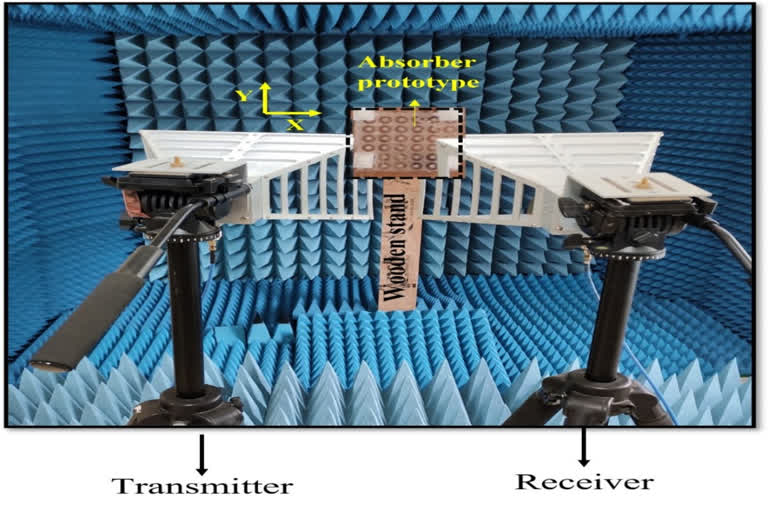Mandi: Researchers from the Indian Institute of Technology Mandi (IIT—Mandi) claimed to have developed a radar-evading material prototype. The enemy country's radar will not be able to trace the movement of military hardware or arsenals due to a chemical coating of this prototype. Research scholars said that the radar-evading prototype is capable of absorbing frequencies (signals), coming from any direction.
The findings were published in the journal IEEE Letters on the Electromagnetic Compatibility Practice and Applications. Dr G Srikanth Reddy, professor of School of Computing and Electrical Engineers and his team Dr Avnish Kumar and Jyoti Bhushan Padhi were working on the project. The prototype will also work as a protective shield for vital military communication towers and power generation plants from possible attack by the enemy country.
Read: IIT Kanpur researcher develops technology to turn ACs into air purifiers
Speaking about the project, Srikanth Reddy said, "This technology was developed using Frequency Selective Surface (FSS) method. It helps in absorbing frequencies used by radar. The surface is not visible to the radar. The FSS technology absorbs more than 90% of radar waves working on different frequencies. Our team of researchers after conducting several experiments confirmed its effectiveness. The theoretical analysis of the experiment was consonant with the practical outcomes."
The material prototype can be used on windows or glass panels of armoured vehicles and vital military establishments. The material has transparent quality. It was developed by our team of researchers and findings were published in the IEEE Journal. The technology is useful in reducing the radar cross section (RCS) and absorbing leakages due to radiation.



